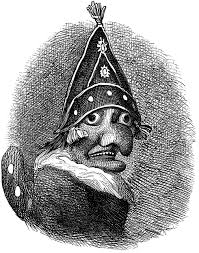When Jimmy Carter reflected on the Camp David Accords, and on the Arab-Israeli conflict, he’d often couch the concessions made on both sides with a anecdotal story about his marriage. “I never won an argument with my wife,” he’d say, “and the only time I thought I’d won I realized the argument wasn’t over yet!” After nearly eight decades of matrimony, former U.S. President Jimmy Carter recently joined his first lady somewhere beyond mortality.
They stepped over the alter and into public service. Naval officer and military spouse; state senator and governor of Georgia; American president and first lady, and human rights activists, public health ambassadors, and a laureate of the Nobel Peace Prize. All the while owning and operating a 360-acre peanut farm in Plains, Georgia. “It was a full partnership,” the 39th president said of the couple’s 77 year marriage.
There was another milestone for the longest-married American president, too. At 100, Jimmy Carter was the longest-lived of the 46 men who’ve served in the Oval Office. Looking back at the century, Carter says the most pivotal decision he ever made wasn’t as head of state, commander-in-chief, or even as the executive officer of a nuclear submarine during the Cold War. “The most important thing I ever did was say ‘I do.’”
More than 2 million marriages occurred in the United States in 2024, according to the CDC’s National Center for Health Statistics. US marriage rates would decline 54% during Carter’s lifetime, and the strongest downturn began to occur when Carter was in the White House.
Women's Rights, Vietnam, and the Cold War we're shaking up the power imbalance, and when Carter started thinking about a presidential run he was as yet unknown on the national political stage. In the aftermath of Watergate, that became an advantage.
Long before the current occupant of the White House came along, Carter was the first to discern the public's incurring disaffection with traditional liberalism. Transitioning from old liberal politics to an emerging conservative national consensus, Carter’s one-term presidency (1977-1981) was plagued by its response to world events—inflation, energy crisis, war in Afghanistan, a hostage crisis, Olympic boycotts, and the Iranian Revolution.
But for those 12 days at Camp David with Egyptian President Anwar Sadat, and Israeli Prime Minister Menachem Begin, the 39th president’s legacy might've been buried on the Presidential Historians Survey. For the cessation of the 1948 Arab-Israeli War, Sadat and Begin shared the 1978 Nobel Peace Prize, and Jimmy Carter received the award in 2002 “for spearheading decades of work promoting economic and social development, seeking solutions to international conflicts, and for advancing democracy, human rights, and peace throughout the world.” Carter died on 29 December 2024, and averaging all presidential surveys today Carter ranks squarely in the middle.
At the heart of those debates lied a power struggle which Carter was able reframe into a discussion about partnerships. The Summit itself didn’t produce a formal peace agreement, but rather created what Carter called “Two Framework Agreements” which combined led directly to the 1979 Egypt–Israel peace treaty. Carter oversaw the last war an Arab conventional army would ever fight with Israel.
Over the next 50 years, the Israeli-Palestinian conflict would take the world stage. War, hostages, famine, and the world’s largest humanitarian crisis have combined to auger approximately 50,000 casualties of the the Gaza War. Hamas—a Palestinian nationalist Sunni Islamist political organization with a military wing—has governed the Gaza Strip since 2007, and received $350 million from Iran in 2023, according the a US Department of State report. Conventional war has given way to vigilantism in the Middle East, but in the same way Carter foresaw the rise of nationalism in the United States, the stargazer could see through the Realpolitik in play and toward the light of day where each and all eventually meet their maker. It’s material, dear readers, to remember Jimmy Carter at Easter.
The Stargazer could see through the Realpolitik in play to the light of day.
At the heart of the Arab-Israeli conflict lies two fervently religious peoples laying claim to the same homeland. Jewish people have had a continuous, though fluctuating, presence in the Land of Israel for nearly 4,000 years. Gaza City, in particular, has been seized, ruled, destroyed, and repopulated by various dynasties, empires, and nations for 4,000 years.
During WWI, an Arab uprising drove Ottoman forces out of the Levant in 1916, and in exchange the British guaranteed their independence in the region (McMahon–Hussein Correspondence). Conversely, Britain also promised its support for the establishment of a Jewish "national home" in Palestine in 1917 (Balfour Declaration). The war concluded in 1918, and the League of Nations’ Mandate for Palestine called upon the British to clumsily administer the very chaos they’d created over the next 30 years.
On 14 May 1948, David Ben-Gurion took control and proclaimed the establishment of the State of Israel. U.S. President Harry Truman recognized the same. Israel has fought 7 notable wars and conflicts with various Arab forces since, all of which have and continue the engage the United States and Arab world in conflict. U.S. President’s Clinton, Trump, and Carter all have skin in the game, but of the seven significant normalization efforts each and all share a dotted line to Carter’s “Framework.”
The Camp David Summit (17 September 1978) was Carter’s ambitious belief that face-to-face talks could break the negotiating deadlock and hammer out an Egyptian-Israeli peace agreement. The roughly 1.5 years of diplomatic efforts by Egypt, Israel, and the United States to resolve conflict between Israel and its Arab neighbors presage three main objectives: 1) Arabs recognize Israel's right to exist in peace, 2) Israel withdraw from occupied territories with security guarantees, and 3) the restoration of Jerusalem.
“The two men were totally incompatible,” Jimmy Carter remembers the Summit. “There was intense perturbation between them: shouting, banging on the tables, stalking out of the rooms. So for the next seven days we separated them,” Carter recalls the historic 12-days of negotiations at the president’s country seat in Maryland. “We negotiated with them one-on-one.”
What isn’t widely known is that Carter had quietly engaged scholars and religious experts to produce draft treaties that were designed for consensus, a tactic which led to recurring engagements between the two over the next 16 months. The initial briefing paper began:
Begin and Sadat have evidenced similar personal and national objectives throughout their transformation from underground fighters to political leaders. Despite their often vituperative comments, each should recognize the other as a politician capable of change, compromise, and commitment.
Then Carter scribbled a reference to empathy in the margin: “let each man walk in the other man’s shoes.”
That “Framework” is elided as the arbiter to the negotiations that cast Jimmy Carter as a peacemaker. However, that peace process broke down. In 2006, Carter penned: “Palestine: Peace not Apartheid” and explained to the Los Angeles Times, “Israel's continued control and construction of settlements have been the primary obstacles to a comprehensive peace agreement in the Middle East.”
As to those encroachments, and the October 7 Hamas-led attack on Israel, Israeli Prime Minister Benjamin Netanyahu visited the White House in April to confirm his three main objectives with Palestine: 1) Destroy Hamas’ military and governing capability, 2) secure the release of all hostages, and 3) ensure Gaza never poses a threat to Israel again.
That perspective, coupled with the use of the word Apartheid, has sparked controversy that neither Netanyahu nor Carter will recant. Netanyahu said in 2016, "Palestinian leadership demands a Palestinian State with one pre-condition: No Jews. There's a phrase for that: It's called ethnic cleansing." Carter put it this way. Shortly before going into hospice in March 2024, Jimmy Carter said, “The ultimate purpose of that book was to present facts about the Middle East that are largely unknown in America.”
Archives










